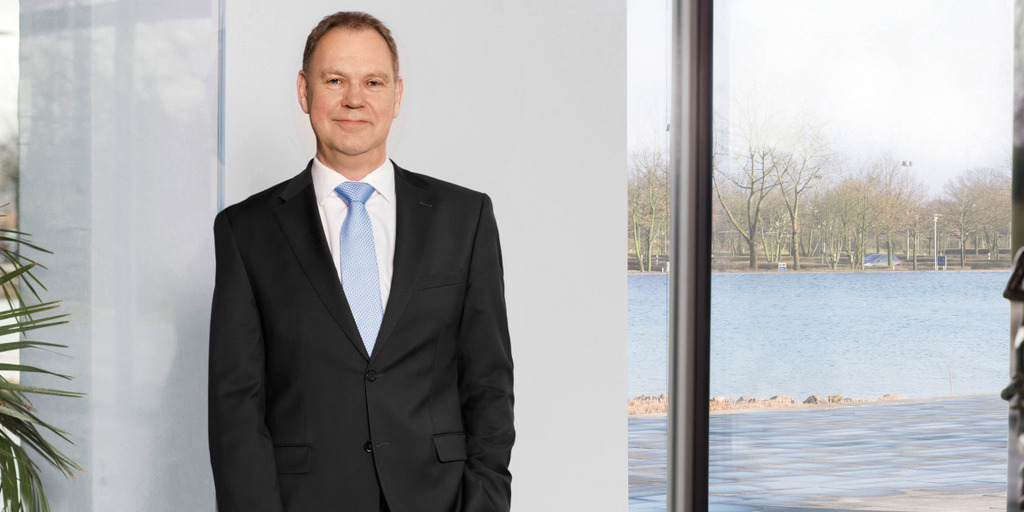Interview for Social Europe (shortened version). The complete interview can be accessed via the weblink to the right (or below, if viewed on a mobile device).

Jan Voth
Brexit/Trump: Wake-up Calls for a More Active EU?
On March 29 British Prime Minister Theresa May officially announces the United Kingdom's exit from the EU - nine months after a majority of the UK voted for "Brexit". How should the EU conduct its negotiations? Do Brexit and the new U.S. president signify the end of international cooperation as we know it? Statements by our Chairman and CEO Aart De Geus.
Background
Social Europe: Can the EU recover from the Brexit shock, and what are the EU's best options: deepening, rolling back or improving integration?
Aart De Geus: Brexit was indeed a shock, but we would do better to start seeing it as an opportunity. We have to live with the reality that the majority of Brits do not want to be a part of the European Union. It is now for the Brits to define what kind of relationship with Europe they want to have. As for the EU, Brexit should be seen as a wake-up call both for a future Europe that is attractive for all its citizens and one that can deliver on what they expect from the EU.
How should the EU negotiate with the UK on the terms of the divorce?
The EU should negotiate the terms of divorce, first of all, in a transparent way. It is extremely important that the way it is done is trustworthy and can be understood from the outside.
Secondly, on content, it is important that the European Union stays close to its core values and interests. Like any other neighbour of the EU, Brits should not be granted any exceptions so no cherry-picking.
Thirdly, I would say, keep one's eyes open and be pragmatic. Even if the UK is not a member of the EU anymore, we share a lot of history, ideas, and values.
What role could Germany play?
Germany might be the most important player to realise that Brexit is indeed an opportunity for more integration, and that is because some other players have huge difficulties at home and do not have the same clout or the power.
Germany is a strong believer in the European idea and European integration always featured high on the German agenda. Concrete steps for making Europe better, delivering better on the expectations of citizens, is something that should now be pursued. Germany should play a leading role in getting us there.
How should Europe react to the social shifts that are obviously driving populist movements across Europe and the United States?
The fact that populist movements are around in the United States as well as in European countries is a good illustration of the fact that it has nothing to do with the European Union as such. So those who say that the EU is the reason for populism, I would say: "Well, look at America – they don’t have Brussels."
Do you see any links between the vote for Brexit and the success of populists like Donald Trump in the United States?
Drawing upon the findings of our most recent "eupinions" survey on the rise of populism, there is a not very well understood but widely observed fear of globalization. It seems that many people are very afraid of a rapidly changing world.
What we observe in many countries – and this is the common denominator between Brexit and the US elections – is that people seek refuge in a reduction of complexity, even a reduction of reality. In this sense, policies that revert to the national level, rather than to the global level, or that go back to the past rather than to the future, seem to gain a lot of traction.
Would you say that, in the light of Brexit and Trump, that's the end of international cooperation as we know it?
I'm not a big fan of talking in these kinds of paradigm shifts, or if it's the end of this order, or if it's the end of that order. What we have seen in history is that, although we think that this is the biggest change of the year, and maybe of several decades, only history will tell us if that is true or not.
In my view, it is much more important for us to concentrate on Europe and accept what there is for us to do. And what we should do is make Europe better and ask ourselves the question: "What role does Europe want to play in the global order?" Thereby, we have to take serious account of the fear of globalization among our citizens.
In addition, what might be more important than the level of self-interest of the United States is what other global players are up to. Let's be frank, even with a very, very empathetic leader like Barack Obama, US policy had some elements of very, very strong self-interest, and was not always oriented towards the global common good. So how big the change turns out to be in practice, we will have to wait and see.
Please also find the recent blogpost by our Global Economic Dynamics colleague Christian Bluth: "Article 50 Has Just Been Triggered – What Happens Next?"


